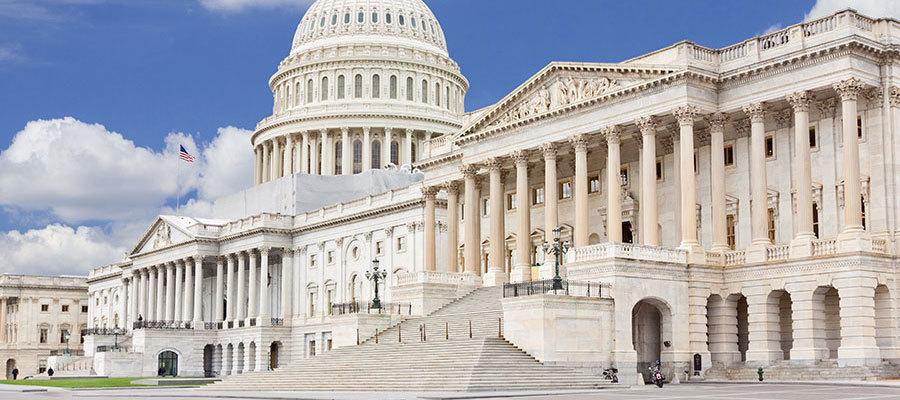Senate Budget Committee passes FY 2025 budget resolution; House marking up its own resolution

The Senate Budget Committee Feb. 12 advanced a budget resolution for fiscal year 2025 focusing on the border, military and energy by a vote of 11-10. The resolution, announced Feb. 7 by Sen. Lindsey Graham, R-S.C., chairman of the committee, would authorize $85.5 billion in spending per year, to be fully offset by corresponding spending cuts. This is the first of two budget reconciliation bills the Senate hopes to enact this year, with the second focusing on extending tax cuts and cutting spending.
Meanwhile, the House Budget Committee met today to mark up their budget resolution that calls for increasing the debt ceiling by $4 trillion and allows for $4.5 trillion in spending for tax cuts. The House bill would also allocate $200 billion for border and defense spending. Additionally, it instructs seven committees to come up with no less than $1.502 trillion in mandatory cuts over 10 years. Notably, for health care, the bill instructs the House Energy and Commerce Committee to cut mandatory spending by a minimum of $880 billion. The Energy and Commerce Committee has primary jurisdiction over numerous health care programs, including Medicaid, and some proposals have been circulating that would enact significant cuts to Medicaid. As of press time, the markup is still ongoing.
“As the Senate and House Budget Committees begin deliberations on their Fiscal Year 2025 budget resolutions, the American Hospital Association urges Congress to take seriously the impact of reductions in health care programs, particularly Medicaid,” said AHA President and CEO Rick Pollack in a statement shared yesterday with the media. “While some have suggested dramatic reductions in the Medicaid program as part of a reconciliation vehicle, we would urge Congress to reject that approach. Medicaid provides health care to many of our most vulnerable populations, including pregnant women, children, the elderly, disabled and many of our working class.”
A common budget resolution must be passed by both chambers to move forward with the reconciliation process. The full Senate is expected to consider the budget resolution next week. View the AHA's webpage and fact sheet for more information on budget reconciliation.

